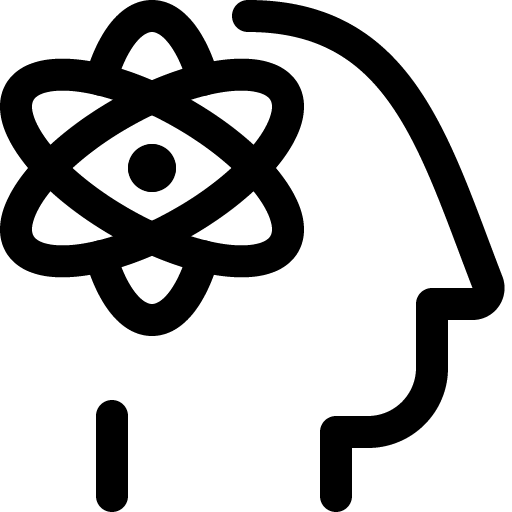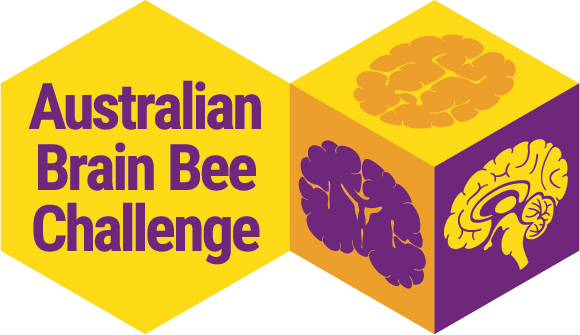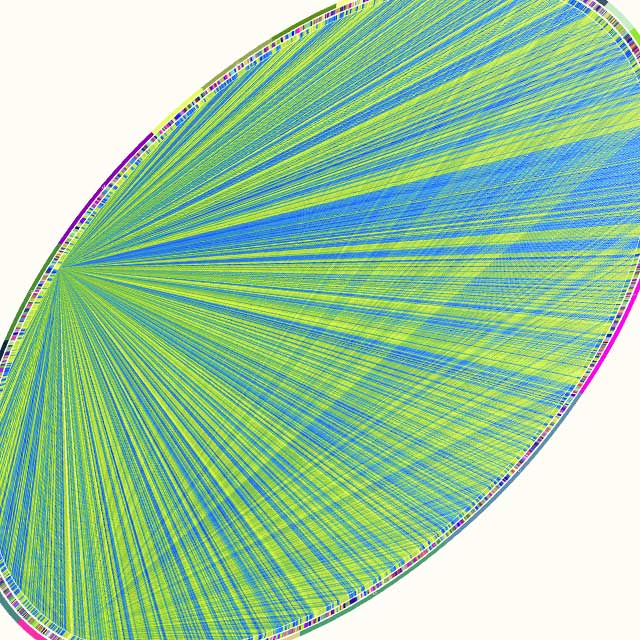You can help progress our research
You don't have to be a scientist to get involved with QBI. We offer a range of opportunities for everyday people to connect and progress our research and discoveries.
The foundation for all of our work is the funding we receive through a range of sources, including philanthropic donations from our generous supporters. There are many ways to give to QBI: directly, through planned giving, or holding fundraising events that entertain or challenge supporters as they dig deep to help us better understand the brain.
We also offer opportunities for students to learn directly from our inspiring researchers through lab placements, and for community members to tour our facilities and attend events. Finally, you can give one of the greatest gifts of all by volunteering for studies to advance treatments and diagnostics for brain diseases and disorders.
How you can support us
What your donations fund
Through your support you are helping QBI solve the major neurological health challenges facing our community today

World leading research

Brightest scientific minds

Solutions to global health challenges
Brain Research Endowment Fund
Find out more Donate to research
QBI’s Brain Research Endowment Fund supports scientists exploring the unknown, which will guide new research on finding cures for diseases or improving quality of life.
Community & school programs

Australian Brain Bee
The Australian Brain Bee Challenge (ABBC) is a competition for high school students in year 10 to learn about the brain and its functions, learn about neuroscience research, find out about careers in neuroscience and to dispel misconceptions about neurological and mental illnesses.
Participate in a research study
By being part of our human research studies you can make a valuable contribution to improving the lives of people living with brain disease and disorder.
Research in action
Adjunct, affiliate and honorary
Mr John Kelly
Researcher profile is public:0Supervisor:Ms Jessica McFadyen
PhD StudentQueensland Brain InstituteResearcher profile is public:0Supervisor:Ms Alice Petty
PhD StudentQueensland Brain InsituteAdjunct Research FellowQueensland Brain InstituteResearcher profile is public:0Supervisor:Dr Hannah Filmer
Researcher profile is public:1Supervisor:Professor Grant Montgomery
Researcher profile is public:1Supervisor:Researcher biography:Professor Grant Montgomery FAHMS FSRB Hon FRSNZ
Professor Montgomery was born in New Zealand, completed PhD studies in Animal Science at Massey University and post-doctoral research in France. In 1987, he co-founded the New Zealand Sheep Genomics Program in the Biochemistry Department at the University of Otago and pioneered the introduction of genome mapping methods in farm animals. He moved to Australia in 1999 and joined the Queensland Institute of Medical Research where he ran a successful genome mapping program for human complex disease. In 2016, he moved to the University of Queensland and holds joint appointments at the Institute for Molecular Bioscience (IMB) and the Queensland Brain Institute (QBI). He is a National Health and Medical Research Council Leadership Fellow and Director of the UQ Genome Innovation Hub. He was elected a Fellow the Society for Reproductive Biology in 2012, Fellow of the Australian Academy of Health and Medical Sciences in 2015, and Honorary Fellow of the Royal Society of New Zealand in 2016. His research focusses on discovery of critical genes and pathways increasing risk for common diseases especially reproductive diseases including endometriosis.
Associate Professor Shyuan Ngo
Scott Sullivan Research Fellow in MNDQueensland Brain InstituteResearcher profile is public:1Supervisor:Researcher biography:I completed my undergraduate and PhD training at UQ. After completing my PhD in 2009, I took up a postdoctoral position at UQCCR to introduce a translational edge to my research program. In 2012, I was awarded a Bill Gole Postdoctoral Research Fellowship from the Motor Neurone Disease Research Institute of Australia (MNDRIA) and returned to the School of Biomedical Sciences with this fellowship to continue my research program in motor neuron disease (MND). In 2015, I was awarded the Scott Sullivan MND Research Fellowship. In this position, I conduct research between the Australian Institute for Bioengineering and Nanotechnology and the Queensland Brain Institute at UQ, and the Royal Brisbane and Women's Hospital and the Wesley Hospital to address how changes in energy metabolism affects the course of MND, whilst working to develop therapies for MND.
The primary interest of my research group is to understand how metabolic homeostasis at the systemic and cellular level can impact upon neurodegenerative processes. My group's Metabolic Exploration in Neurodegenerative Disease (MEND) research program centres on Motor Neurone Disease (MND), a fatal neurological condition in which the average life expectancy is 27 months following diagnosis. In MND, the irreversible degeneration of neurones in the central nervous system leads to progressive paralysis and eventually, death. There is no effective treatment for MND, and hence no cure. We are using mouse models of MND, and human myosatellite cell-derived muscle fibres and human induced pluripotent stem cell (iPSC)-derived neurons to not only understand the mechanistic nature of MND, but to also conduct preclinical testing of potential therapeutic compounds. The combined use of mouse and human-derived models are integral to our goal of translating research findings into clinical trials for MND.
Associate Professor Martin Sale
Associate Professor in PhysiotherapySchool of Health and Rehabilitation Sciences, UQResearcher profile is public:1Supervisor:Researcher biography:The human nervous system is no longer thought of has hard-wired, and is in fact capable of rapid change throughout life. This plasticity is important for learning, memory and recovery from brain injury. I am interested in using emerging brain stimulation and imaging techniques to "artificially" induce plasticity in the human brain, to ultimately improve the treatment outcomes for various neurological conditions, particularly stroke. These stimulation techniques include transcranial magnetic stimulation (TMS) and transcranial direct current stimulation (tDCS).
I completed a BSc in 1994 and received a First Class Honours in Physiology in 1995 from the University of Adelaide. I then completed a Bachelor of Physiotherapy Degree at the University of South Australia. Returning to research in 2005, I undertook a PhD at the University of Adelaide, which I completed in 2009. My doctoral studies focussed on a new and exciting area of neuroscience – neuroplasticity. At the time of commencing my PhD, it was becoming clear that various non-invasive brain stimulation techniques (such as TMS) were able to temporarily reorganise the circuitry in the human brain in a similar way to what happens when we learn something new or store a memory. I was interested in trying to understand why some people responded to these stimulation paradigms, and others didn't. What I discovered was that it an important driver of plasticity in humans was when the stimulation was delivered. In effect, the brain seemed to learn better at night time compared to the morning. This has important clinical implications, as it suggests that rehabilitation might be more effective at a certain time of day.
I was awarded a University of Queensland Postdoctoral Fellowship in 2010, and then a NH&MRC Postdoctoral Research Fellowship in 2011 to investigate more intensely how the brains of stroke patients rewire. I am using state-of-the-art stimulation and imaging techniques such as TMS, magnetic resonance imaging (MRI) and electroencephalography (EEG) to understand how the brain reorganises when it stores information, and how we can boost this process.
I am currently an Associate Professor and Head of Physiotherapy within the School of Health and Rehabilitation Sciences at UQ. I head my own brain stimulation and imaging laboratory, and am conducting experiments in the following areas:
a) investigating the link between brain oscillations, sleep, plasticity and ageing;
b) improving hazard perception with brain sitmulation;
c) identifying factors that improve neuroplasticity induction in health and disease.
Professor Naomi Wray
Affiliate NHMRC Leadership FellowQueensland Brain InstituteResearcher profile is public:1Supervisor:Researcher biography:Naomi Wray is the Michael Davys Professor in the Department of Psychiatry, University of Oxford. She holds an appointment at the Institute for Molecular Bioscience (IMB) within the University of Queensland. She joined UQ Queensland Brain Institute in 2011 moving to the IMB in 2015. She was Head of the Centre for Population & Disease Genomics within IMB 2018-2023. Her Oxford appointment started in 2023.
Her research focuses on development and application of quantitative genetics and genomics methodologies across complex diseases, disorders and traits, but particularly psychiatric-related traits.
She is a National Health and Medical Research Council (NHMRC) Leadership Fellow, a Fellow of the Australian Academy of Science and a Fellow of the Australian Academy of Health and Medical Science. In 2020 she was awarded the NHMRC Elizabeth Blackburn Award for Leadership in Basic Science and the 2021 International Society of Psychiatric Genetics Ming Tsuang Lifetime Achievement Award. She is a Clarivate Highly Cited researcher.
She was Director of the Program in Complex Trait Genomics (PCTG) funded as an NHMRC Program Grant 2017-2022. She plays a key role in the International Psychiatric Genomics Consortium and established the sporadic ALS Australia systems genomics consortium (SALSA) funded by the MND Research Australia IceBucket Challenge and FightMND. She is a co-investigator on the Australian Genetics of Depression Study (AGDS) and is currently launching the AGDS-Cello project focussed on establishing a cell line resource from participants with a detailed history of anti-depressant use and response measures. She is part of an NHMRC Synergy (2023-2027) "Rhythms and blues: Personalising care for body clock dysfunction in mood disorders".
She is secretary of the International Society of Psychiatric Genetics, and is on the editorial advisory boards of JAMA Psychiatry, Neuron, Royal Society Open and Research Directions: Depression.
Body: Professor Naomi Wray: Program in complex trait genomics
Professor Naomi Wray: Program in complex trait genomicsThe Wray laboratory focusses on understanding the genetic contribution to psychiatric and neurological disorders. The group specialises in applying new analytical methods of genomic data to provide insights into these complex disorders, with an ultimate goal to improve diagnosis, prognosis and treatments. The lab plays a key role in the international Psychiatric Genomics Consortium and Prof Wray co-leads the sporadic ALS Australia systems genomics consortium (SALSA), funded by the IceBucket Challenge.
Dr Xiaoying Cui
Honorary Research FellowQueensland Brain InstituteResearcher profile is public:0Supervisor:Mr Tim Edwards
PhD StudentQueensland Brain InsituteResearcher profile is public:0Supervisor:Dr Amir Fazlollahi
Research FellowQueensland Brain InstituteResearcher profile is public:1Supervisor:- 30 Oct 2024Associate Professor Silvia Velasco
Murdoch Childrens' Research Institute
Melbourne
Host: Dr Nathalie Dehorter

